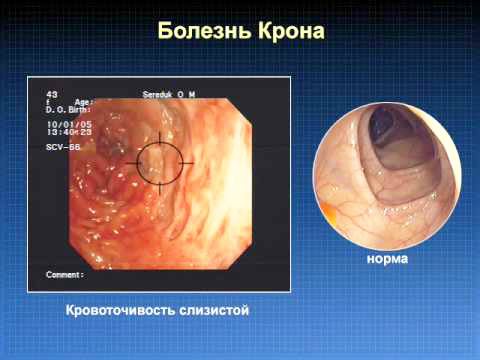Bloating and diarrhea are a sign of dysbiosis. That is, this means that pathogenic microorganisms begin to suppress favorable flora. This can happen gradually, or it can catch a person suddenly and develop very intensively. Diarrhea, bloating and colic are most often the result of the colonization of various harmful bacteria and viruses in the intestines. They make it difficult to digest food, which provokes the fermentation process.
Harmless reasons
There are exceptions to the rule when other causes of bloating and diarrhea appear.
Mainly these include:
- Overeating fresh fruits and vegetables.
- Regular overeating.
- Drinking large amounts of carbonated drinks.
- Eating incompatible foods.
- Using large amounts of laxatives.
In all these cases, diarrhea and bloating are a natural reaction of the body to an improper supply of substances for digestion. But they can be considered non-critical only in the absence of additional symptoms. It is also important to note that this condition should not be repeated systematically. Gas and diarrhea are just visible beacons that indicate that a difficult process is taking place in the intestines.
In an adult, bloating, diarrhea and lack of appetite can occur simply as a result of a feast at which a lot was eaten and a lot was drunk. But all unpleasant sensations should leave the person within two days. If the body reacts to certain foods in this way, then it is worth reducing their consumption, or better yet, eliminating them altogether.
Important! The process of food fermentation in the intestines not only causes discomfort, but also provokes the development of many diseases that can be acute or chronic. This condition cannot be ignored.
Heartburn, diarrhea, bloating
Problems of the gastrointestinal tract can be treated both with medication and with folk remedies.
But in any case, to exclude the possibility of a serious illness, you should consult a doctor and not self-medicate. A common way to treat heartburn is to drink regular baking soda, which causes a reaction in the stomach to form calcium carbonate and carbon dioxide. Those who used this method noticed heaviness in the stomach, belching, and bowel disorders.
1) Drinking a decoction of oatmeal.
A decoction of oatmeal is viscous; it lines the lining of the stomach from the inside, forming a mucous film on it and relieving inflammation. To prepare it, just pour a handful of oatmeal in a mug for 5 minutes, then remove the flakes and pour the broth into a glass. If the burning sensation is particularly severe, drink 2-3 glasses a day; usually the symptoms disappear on the third or fourth day of taking the oat infusion.
2) Treatment with viburnum jam.
This folk recipe wonderfully removes bloating and bad breath; viburnum is also good as a vitamin preparation for restoring the body after infectious diseases characterized by diarrhea, fever and vomiting. To prepare a medicinal drink, dilute a teaspoon of viburnum jam in a container with hot water and take a glass in the morning and evening.
3) Treatment with a decoction of calamus root.
This natural herb is good for treating the entire digestive tract. You can make tinctures from calamus root that have excellent medicinal properties; it is good to chew for a burning sensation in the stomach and unpleasant belching. Has strengthening properties for loose stools.
4) Treatment with potato juice.
Potato juice has a specific taste and smell, it is not very pleasant to drink, but it helps well, enveloping the entire gastrointestinal tract and relieving inflammation.
A good remedy in the fight against diarrhea and bad breath.
Starch in its composition is an excellent remedy for facilitating bowel movements and preventing inflammatory processes in the intestines, characterized by fever, vomiting and deterioration in the general condition of the body.
5) Treatment with vegetable oil.
A good remedy for diarrhea, having laxative properties, it forms a fatty film throughout the digestive tract and prevents dysbiosis and infectious damage to the intestinal walls. Vegetable oil perfectly relieves unpleasant belching and bad breath, but do not overdo it, otherwise you can provoke vomiting or loose stools.
If the symptoms of heartburn and diarrhea, or both, do not go away after treatment with folk remedies, be sure to consult a doctor so that he can prescribe a course of medications to get rid of the disease.
Medications include:
- Maalox;
- Almagel;
- Omeprazole;
- Levomycetin;
- Hilak Forte;
- Linux;
- Bifiform.
The list of drugs is large; only the most common and used drugs are listed here.
A complete cure for heartburn, nausea and diarrhea is possible only with an integrated approach to therapy and the use of not only medications, but also changes in lifestyle and nutrition.
- The patient must exclude everything spicy, fatty, smoked and hot from food. Such products lead to increased secretion of gastric juice and increase the degree of damage to the mucous membranes, intensifying all symptoms.
Fatty and fried foods should be avoided
- Complete cessation of smoking and drinking alcoholic beverages.
- Meals should be small and frequent. It is necessary to avoid eating large portions, as this leads to stretching of the stomach and makes it easier for its juice to flow into the esophagus.
- After eating, you should refrain from sleeping or doing any physical activity for one to two hours.
The use of medications is aimed at accelerating the passage of food through the stomach and protecting the mucous membranes from the aggressive effects of gastric juice:
- Proton pump inhibitors (Rabeprazole, Omeprazole) and H2-histamine receptor antagonists (Ranitidine) can reduce the formation of hydrochloric acid and reduce the damaging effects of gastric juice.
- Enveloping drugs (Phosphalugel, Almagel) cover the mucous membranes with a protective film and neutralize hydrochloric acid in the lumen of the stomach.
- Prokinetics (Metoclopramide, Cerucal) speed up the passage of food through the stomach, which helps get rid of nausea and heartburn.
An integrated approach to treatment allows the patient to achieve complete recovery in a short period of time. However, it is always necessary to remember that the diseases indicated in the causes are chronic. In this regard, any error in diet or lifestyle can lead to their exacerbation and the return of all symptoms.
Unpleasant symptoms such as heartburn and diarrhea are often signs of poor-quality food eaten the day before or the development of pathology.
These conditions may appear at different times, or heartburn and diarrhea may occur simultaneously, causing severe discomfort.
Symptoms can be relieved by two main sets of measures:
- The use of specialized medications, based on the prescription of a therapist or gastroenterologist.
- Using alternative medicine recipes at home to speed up recovery and saturate the body with vitamins.
The first aid during the period of loose stools accompanying heartburn will be the following medications:
- Enveloping drugs (Phosphalugel, Almagel, Maalox) cover the mucous membranes with a protective film and neutralize hydrochloric acid in the lumen of the stomach.
- Sorbents are drugs that help remove harmful and toxic substances (Polysorb, Smecta, activated carbon, Enterosgel).
- Proton pump inhibitors (Rabeprazole, Omeprazole) and H2-histamine receptor antagonists (Ranitidine) can reduce the formation of hydrochloric acid and reduce the damaging effects of gastric juice.
- Prokinetics (Metoclopramide, Cerucal) speed up the passage of food through the stomach, which helps get rid of nausea and heartburn.
- Loperamide, a piperidine derivative, is an opioid drug used to treat diarrhea caused by gastroenteritis and inflammatory bowel disease.
- Probiotics are natural biologically active preparations for the complex treatment of gastrointestinal diseases (Bifiform, Gastrofarm, Probilak).
ethnoscience
Unconventional treatment recipes based on natural ingredients given to us by nature effectively help get rid of painful syndrome, cramps, heartburn, loose stools and nausea.
- Oatmeal decoction is an effective remedy for treating frequent urge to go to the toilet. Due to its viscosity, the decoction envelops the walls of the inflamed intestine. To prepare, you need to pour 100 g of oatmeal into 1 glass of water, boil for 5 minutes, cool and strain. When symptoms are pronounced, drink 3 glasses a day so that the symptoms are relieved.
- Viburnum fruit jelly quickly and effectively eliminates burning sensation, bloating, fights diarrhea, and has anti-inflammatory properties.
- Calamus root infusion is an excellent therapy to get rid of indigestion, belching, and also helps with vomiting. To do this, crushed (1 tbsp.) raw materials are poured with 1 glass of boiling water, left for an hour and taken 100 ml three times a day.
- Raw potato juice, although it has an unpleasant taste and aroma, has excellent healing properties for diarrhea. The recipe effectively combats symptoms such as heartburn and diarrhea, the causes of which are gastritis, ulcers and other inflammations of the abdominal cavity. It also helps eliminate bad breath. You need to drink 100 ml of juice on an empty stomach for a week. If the problem is not resolved and heartburn, diarrhea, and belching resume, after a 7-day break, repeat the course of therapy.
- Vegetable oil, for example, flaxseed oil, copes well with the symptoms of bloating, gas formation, and treats loose stools. In addition, the oil base envelops the entire food tract and prevents dysbiosis and the development of infections. But, flaxseed oil must be taken strictly in the indicated dosage, 1 tsp. 2 times a day. Otherwise, it may cause upset, nausea, and vomiting.
- Rice decoction has a quick effect; heartburn and diarrhea, regardless of the cause, in most cases decrease or stop altogether. To prepare the product, add 1 liter of water to 4 tbsp. l. rice and cook for 10-15 minutes. After this, cool, strain and consume 1/2 cup of the broth 5-6 times a day, before meals.
If none of the remedies help and the symptoms continue, you need to consult a specialist to review the possible causes and treatment regimen.
Source: https://alfabard.ru/izzhoga-ponos-vzdutie-zhivota/
Different forms of manifestation of the disorder
Bloating and diarrhea can manifest themselves in different ways depending on the etiology of the problem. The causes of bloating, diarrhea and other abdominal discomfort are determined by a list of not too severe disorders in the digestive tract and a group of fairly serious disorders. Based on the specifics of the symptoms, you can significantly narrow the list of suspicions.
Knowing the types of diarrhea will help with this:
- Acute form, when diarrhea and gas may be accompanied by vomiting, and the urge to defecate occurs abruptly and is often repeated. This often indicates damage to the intestines by bacteria or viruses. This condition may last about 10 days while the patient receives treatment. It is especially dangerous due to the possibility of dehydration - a most dangerous condition in children and pregnant women, as well as in people over 60 years of age. Often in this case the body temperature rises.
- Chronic diarrhea and bloating, which is characterized by a duration of more than 10 days. This condition is dangerous because the entire intestinal flora is washed away, and all organs of the digestive system are affected, and anemia is also possible. Often this form is a manifestation of diseases of the digestive system and liver.
- False diarrhea and gas, which is provoked by a sharp spasm, which causes defecation.
The most common form is acute, when a person simply cannot ignore the owl’s condition.
Treatment
The fight against diarrhea and flatulence provides an effect only if the impact is comprehensive. During the treatment process it is necessary:
- Normalize microflora;
- Stabilize digestion;
- Stop secretions;
- Eliminate gas formation;
- Remove spasms.
This is achieved through drug treatment, traditional medicine and all kinds of diets. Treatment should be carried out only after receiving the necessary advice from specialists, even with herbal treatment, a doctor’s advice is required. Before prescribing treatment, it is necessary to determine the causes of the problem in order to select the necessary drugs.
Drug treatment
Before prescribing medications, the doctor determines the cause of bloating and diarrhea. Accordingly, drugs are selected based on it. It can be:
- Probiotics aimed at normalizing microflora and the functioning of the digestive system (Linex);
- Promoting digestive peristalsis and preventing the formation of gases (“Disflatil”, “Espumizan”);
- Drugs aimed at restoring the functioning of the pancreas (Mezim, Festal);
- Defoamers that reduce the formation of gases and remove them from the body (Iberogast, Semiticon);
- Means aimed at stimulating the motility of the digestive system (“Motilium”, “Resolor”);
- Antibiotics that allow you to effectively combat the development of inflammatory processes in the body;
- Sorbents aimed at removing toxins from the human body (Enterosgel, Smecta).
Interesting! Getting rid of flatulence and gas formation, effective methods
Loperamide can be used to counteract diarrhea, and No-Shpa effectively helps against stomach cramps. The drug Trimedat also combats diarrhea.
Diet
Stomach problems require following a certain diet to solve the problem. While specific recommendations will vary depending on the disease, there are general trends.
Prohibited foods include: Milk and cocoa, cabbage and legumes, smoked and spicy foods, various sauces, chocolate and confectionery.
It is recommended to eat: biscuits, boiled eggs, buckwheat and oatmeal, broths, not fresh bread or crackers, boiled meat (lean) or fish, boiled vegetables.
During periods of stomach bloating and other problems, it is necessary to consume mainly boiled or steamed food. Meals should be divided into five to six meals, but in small portions. The recommended serving size is a clenched fist to eliminate the risk of overeating.
The menu should be designed in such a way that proteins and carbohydrates are not mixed together, and fruit consumption is provided only as dessert. If you have diarrhea, you need to drink plenty of fluids (plain water) to replenish lost fluid. This is especially true for children and older people, as they are more susceptible to complications of the disease.

What diseases can be accompanied by gas and increased bowel movements?
The causes of frequent bloating and diarrhea can be different; only a specialist can determine them specifically.
The most common ailments causing this condition include:
- Irritable bowel syndrome, when there are not enough enzymes to process food, and it begins to ferment in the lower part of the gastrointestinal tract.
- Ulcerative colitis, which occurs when blood clots or small blood particles appear in the stool.
- Crohn's disease, which is characterized not only by excessive gas formation and frequent bowel movements. But also stomatitis and the presence of ulcers in the anus.
- Various diseases of the pancreas, which are accompanied by pain in the left hypochondrium and the presence of undigested food particles in the stool. These symptoms appear with pancreatitis and organ cancer.
- Inflammatory processes in the gallbladder cause increased flatulence due to insufficient supply of digestive enzymes to the stomach.
- Dysentery is an infectious disease caused by the very persistent and dangerous Escherichia coli Shigella, which enters the body with spoiled foods.
- Poisoning, the main causative agent of which is the Helicobacter microbe. Once in the body, it multiplies quickly and affects the intestines. This is accompanied by acute pain and a sharp deterioration in the patient's condition. Nausea often occurs, progressing to vomiting and a sharp increase in body temperature.
These are the main causes of bloating and diarrhea, which are often accompanied by auxiliary symptoms.
Increased gas formation and diarrhea in adults
Diarrhea is frequent loose stools that appear as a result of disruption of the digestive processes in the body. You should know that diarrhea is not a separate disease, but a symptom of a disease, and it can occur both due to infection and for other reasons, such as poor diet and even stress. The long-awaited summer is a period of vacations, an abundance of fresh vegetables and fruits on the table, and hot weather. This is also a time when the risk of diarrhea is especially high. Every summer in Bishkek there is an increase in diseases accompanied by diarrhea.
About a formidable symptom, the editors of Kaktus. Additional medical literature was also used to prepare the material. What are the types of diarrhea? Infectious diarrhea is caused by various pathogens. It happens: For each individual cause of diarrhea, a different clinical picture arises, therefore, the treatment should be different, suitable for the specific case. How to identify viral diarrhea? The most common causes of viral diarrhea are rotavirus and enterovirus infections.
Their clinical picture is characterized by the first development of symptoms of a viral infection: general malaise, weakness, headache, sore throat, lacrimation and nasal discharge, followed by vomiting and loose stools. With viral diarrhea, loose stools are watery, without admixture of blood or pus. The temperature in these cases usually rises to degrees, sometimes abdominal pain may occur, but not intense and passes after the appearance of loose stools.
The viruses that cause these diseases can be transmitted either through airborne droplets from sneezing, coughing, or through dust if there are viruses in it, or through household contact through contact with objects touched by a sick person.
How to identify bacterial diarrhea? Bacterial diarrhea is caused by bacteria of the Escherichia group; the most typical representative of this group is Escherichia coli, dysentery and, in severe cases, salmonellosis. All bacterial diarrhea is characterized by a high temperature, vomiting in these cases will be repeated, and stool will be more frequent than with a viral infection: 5 times or more.
Routes of transmission: household contact and through the mouth when eating contaminated or stale food or after contacting food with dirty hands. How does dysentery manifest? With dysentery, stools will be frequent, more than 5 times, mixed with mucus and blood. With the further development of the disease, a characteristic symptom is tenesmus - this is a frequent, sometimes every minute, urge to empty the intestines, but without the appearance of discharge.
In turn, Escherichia, against the background of high fever, repeated vomiting, diarrhea and weakness, is characterized by an unstable, wave-like course, when a period of exacerbation is replaced by a period of relief.
What is characteristic of salmonellosis? Salmonellosis is a serious infectious disease that, without appropriate treatment, can cause complications such as infectious-toxic shock and perforation, disruption of the integrity of the intestinal wall and inflammation of the peritoneum. With salmonellosis, you will also experience repeated, often nonstop, vomiting, which can quickly lead to dehydration; stools will be frequent, watery, foul-smelling, and foamy.
Self-treatment of diarrhea without an established cause is strictly not recommended. Often our citizens go to the pharmacy and purchase products that are usually heard of by everyone or that someone recommended to them. But the fact is that the need for a particular drug, as well as its particular use according to age and many other factors, can only be determined by a doctor.
For example, young children are given loperamide or imodium, which are contraindicated for them. Antibiotics are often given without specifying the cause of diarrhea; for some reason, tetracycline is especially popular for self-medication. Should you not take antibiotics if you have diarrhea? Antibiotics are useless in the case of viral diarrhea; they are unable to act on the virus and quite often, when used uncontrolled without a doctor’s prescription, cause dysbiosis.
Antibiotics are prescribed for bacterial diarrhea, after testing and determining the causative agent of the disease. But only a doctor can do this. For rotavirus and enterovirus diarrhea, treatment should be symptomatic, aimed at alleviating the patient’s condition, preventing complications, and eliminating dehydration.
In mild cases, the patient is recommended to drink saline solutions, the most famous and accessible of them is rehydron. In more severe cases, treatment is carried out according to clinical protocols approved by the Ministry of Health of the Kyrgyz Republic, and the amount of fluid needed by the patient is calculated individually. So what should we do? Contact a FMC doctor. In case of severe illness, call an ambulance. What symptoms should you immediately consult a doctor for? Impaired consciousness. Cold sticky sweat and bluish skin.
These signs appear especially quickly in children. Pay attention to the lips, wings of the nose and the space under the nose; if you find cyanosis there that has not been noted before, this is a good reason to consult a doctor. Frequent noisy breathing. Breathing accompanied by wheezing. Intermittent breathing. If you notice these signs in a patient, you must immediately call an ambulance or go to the hospital.
Even if treatment was prescribed before and the patient was sent home. These signs indicate a deterioration in the condition. How to protect yourself and your loved ones from diarrhea? First of all, diarrhea is a disease of dirty hands.
Hygiene comes first in preventive measures. Wash your hands with soap after using the toilet, after visiting public places, after returning home from the street and before eating. If for some reason it is not possible to wash your hands, use antiseptics.
Vegetables and fruits must be thoroughly washed under running water before eating. When cooking food, a sufficient degree and time of heat treatment is very important. Boil or fry the meat well, boil the milk.
And, of course, pay attention to the quality and expiration date of the products you buy. Try to avoid buying and eating ready-made food purchased on the street. Do not leave cooked food outside the refrigerator. Avoid storing already cooked food for too long. To prevent viral infections, avoid crowded places and use face masks.
If there is a sick person in your house, ensure that you stay in bed, limit the contact of children with him, and give him separate dishes, which must be washed well after use. Carry out daily wet cleaning in the room where the sick person is. Ventilate the room twice a day. What complications can arise from improper or untimely treatment? Dehydration, which leads to severe metabolic problems, can cause kidney failure and other organ failure if left untreated.
Infectious-toxic shock. Intussusception in non-medical terms is called volvulus. The formation of ulcers on the walls of the intestine, which in the future, without treatment, can lead to perforation of the ulcer and spillage of intestinal contents into the abdominal cavity. Furazolidone tablets always help me and after 15 minutes it’s as if nothing had happened and they’re cheap. I’ve been suffering from dearie for 6 days now and I don’t have any strength left, but today it’s easier. What to do if a child has diarrhea? It can be: viral due to damage to the body by various viral infections; bacterial, when the body is affected by bacteria.
How to treat diarrhea? Do you have a theme? Write to Kaktus. Tags: Useful, virus, diarrhea, bacteria. Company news. How to apply to AUCA during quarantine? Throughout the quarantine period, Keremet Bank employees helped those in need in all regions.
Complain to the moderator. This is how we live, people are idiots, self-medicating and looking for diagnoses on the Internet, bravo! Comments from users appear on the site only after checking by a moderator.
On our website: you cannot use obscene language you cannot publish insults addressed to anyone, including commentators you cannot explicitly or implicitly threaten any person, including “meeting to talk” you cannot publish incriminating evidence without being prepared to provide evidence or testimony you cannot publish comments , contrary to the legislation of the Kyrgyz Republic, you cannot publish comments in transliteration, you cannot highlight comments in capital font, you cannot publish offensive comments related to nationality, religion, you cannot write comments under different nicknames under one news, it is prohibited to use the words “Cactus”, “kaktus”, “kaktus” as nicknames .
It is allowed to use the specified languages in one comment at the same time.
Symptoms for which you need to call an ambulance
In case of diarrhea and high temperature, treatment at home is unacceptable; an emergency visit to a medical facility is necessary.
Symptoms:
- The skin became dry and pale;
- Strong feeling of thirst;
- Dry mouth even after drinking large amounts of liquid;
- Cracks on the lips;
- Reduced amount of urine, the color of which becomes darker;
- Pain in the heart, arrhythmia, and increased heart rate (tachycardia) appear.
Before emergency medical services arrive, the patient should be given first aid:
- Prevent body dehydration by replenishing water loss. It is necessary to achieve abundant consumption of clean water, take a decoction of chamomile, saline solutions that maintain homeostasis of the body;
If the patient is bothered by severe diarrhea against the background of hyperthermia, then he is strictly forbidden to drink juices, coffee, tea and alcoholic beverages.
- You can relieve severe pain in the abdomen with antispasmodics (No-spa), but this is not recommended. The use of other medications that relieve or eliminate pain is unacceptable.
- If it is necessary to wait for medical help (up to several days), non-steroidal anti-inflammatory drugs (NSAIDs) are used to prevent the occurrence of inflammatory processes.
Intestinal infections are the main cause of diarrhea due to hyperthermia
A common cause of diarrhea and fever (above 37 degrees) in children and adults are infectious diseases of a viral and bacterial nature. Less commonly, acute intestinal infections are caused by infection with pathogenic fungi.
The most common cause of diarrhea is infectious diseases of a bacterial nature, which are transmitted through dirty hands and contaminated foods.
Escherichia coli
This disease refers to infectious diseases transmitted through water, food and airborne droplets. Most often, infection occurs through consumption of: vegetables, fruits, dairy products, fish and meat. And it manifests itself with similar symptoms:
- Temperature (37.5 – 39 degrees), chills;
- Vomiting, nausea;
- Abdominal pain;
- Diarrhea, sometimes with blood.
Dysentery, salmonellosis
Acute intestinal infections such as dysentery and salmonellosis are accompanied by severe diarrhea, in which the following symptoms are observed:
- Feces become green;
- In the most severe cases, streaks of blood appear in the stool;
- The temperature rises (up to 40 degrees), and does not decrease when taking antipyretic drugs.
In such cases, hospital treatment in the infectious diseases department is required. Salmonellosis and dysentery are infections that pose a danger to others.
Rotavirus infection
People with weak immune systems and children are mainly at risk of contracting rotavirus infections. Untimely medical care and poor hygiene of a sick family member can lead to infection of the entire family.
Symptoms:
- Fever and diarrhea (frequent, watery stools);
- Nausea and frequent vomiting (up to 6 times a day);
- Stomach ache;
- Lethargy, weakness, drowsiness.
Treatment of acute intestinal infections (AI) is carried out by a qualified specialist. Treatment at home and inadequate therapy can lead to dysbiosis (disturbance of intestinal microflora), reduces immunity and creates preconditions for frequent infection of microflora.
Food poisoning
Food poisoning can be caused by eating dirty and stale foods, toxic and noxious substances. A food infection develops within 2-3 hours from the time of consumption of low-quality food products, sometimes within 10-20 minutes.
What do nausea, diarrhea, weakness and abdominal pain that occur at the same time indicate?
There are often cases when both diarrhea and vomiting predispose to abdominal pain, and then the condition is complicated by weakness and dizziness. A similar set of symptoms is characteristic of many health problems: from banal food poisoning to a serious intestinal infection. Despite the wide range of possible causes, you should consult a doctor without treating yourself with medications.

Crohn's disease
Crohn's disease is a serious disease primarily affecting the small intestine. The affected area is characterized by the presence of necrosis, ulceration, and subsequent scarring.
Clinically, the acute form resembles appendicitis, in contrast to which there is flatulence and diarrhea mixed with blood.
The chronic course, in addition to the general symptoms of malaise, emaciation, and the presence of constant pain corresponding to the location of the lesion, is characterized by prolonged fever, bloating and rumbling.
The presence of low-grade fever for a long time may remain the only sign of this disease. A pathognomonic symptom, combined with diarrhea, abdominal pain, and low-grade fever, is the development of polyarthritis.

To clarify the diagnosis, a biopsy of the affected area is necessary. As for treatment, specific therapy has not been developed. Symptomatic treatment, corticosteroid drugs, antibiotics, and antihistamines are used. Surgical treatment is sought only in the event of complications (obstruction, perforation, bleeding), since relapses of the disease may occur after surgery.










